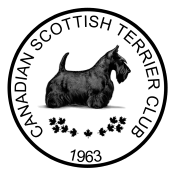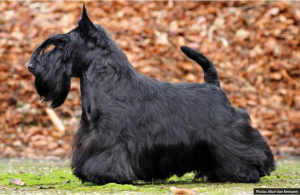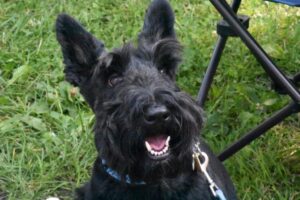Scottish Terrier
Origin
When Scotch Terriers were first discussed in print, it was noted there were two distinct types – one smooth-coated and high on leg, the other short-legged and rough-coated. It was from the latter that many of the better-known terriers evolved. The introduction of dog shows in Britain in 1859 brought out much indignation when fanciers saw all manner of terriers winning as Scottish Terriers. Eventually, a standard was drawn up and in 1881, the name of Hard-haired Scotch Terrier was accepted. Later, the breed name was changed to the present Scottish Terrier.
Temperament
Loyal, loving and playful with his family, the Scottie can be scrappy with other dogs. Alert and spirited, he is also stable and steady-going.
Activity Level
Nicknamed the ‘Diehard,’ the Scottie exemplifies power in a small package. He’s an excellent watchdog that’s suited to almost any accommodation. However, he enjoys the outdoors and should have at least one brisk walk a day.
Height/Weight
Height at the shoulder should be about 10 in (25 cm) and a well-balanced Scottie will weigh 18-22 lb (8-10 kg).
Coat
The short outer coat is intensely hard and wiry. There’s a dense, soft undercoat as well. Hair is longer on the muzzle and over the eyes, forming a beard and eyebrows. The coat is also allowed to grow longer on the sides, underbelly and legs.
Colour
The coat may be grey, brindle, black or wheaten.
Grooming
Considerable grooming is needed to keep the Scottie looking trim. Pet coats may be clipped, but will lose the hard texture.
Link to the CKC Scottish Terrier Breed Standard click HERE
Views: 2393






